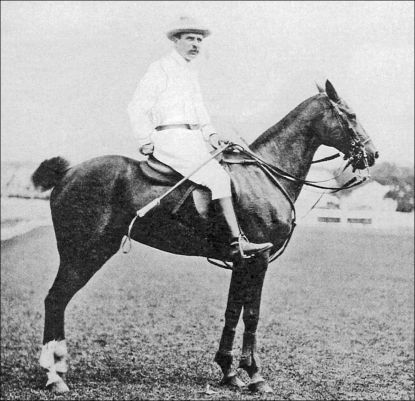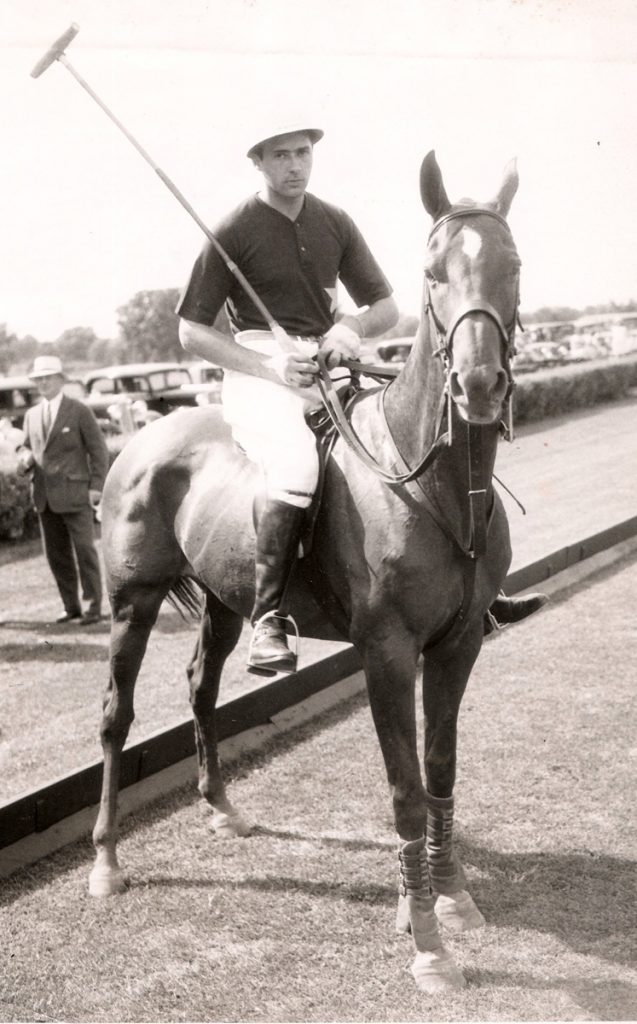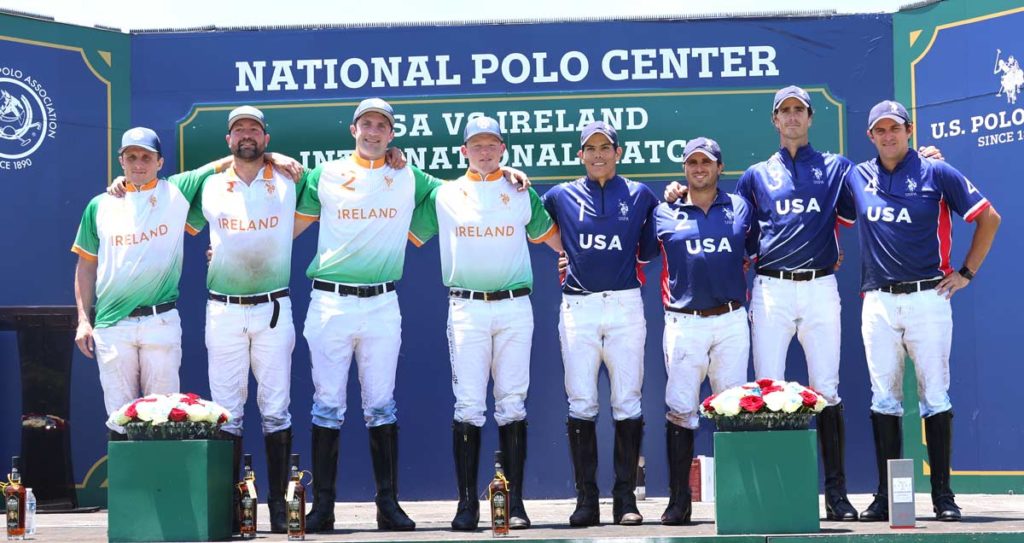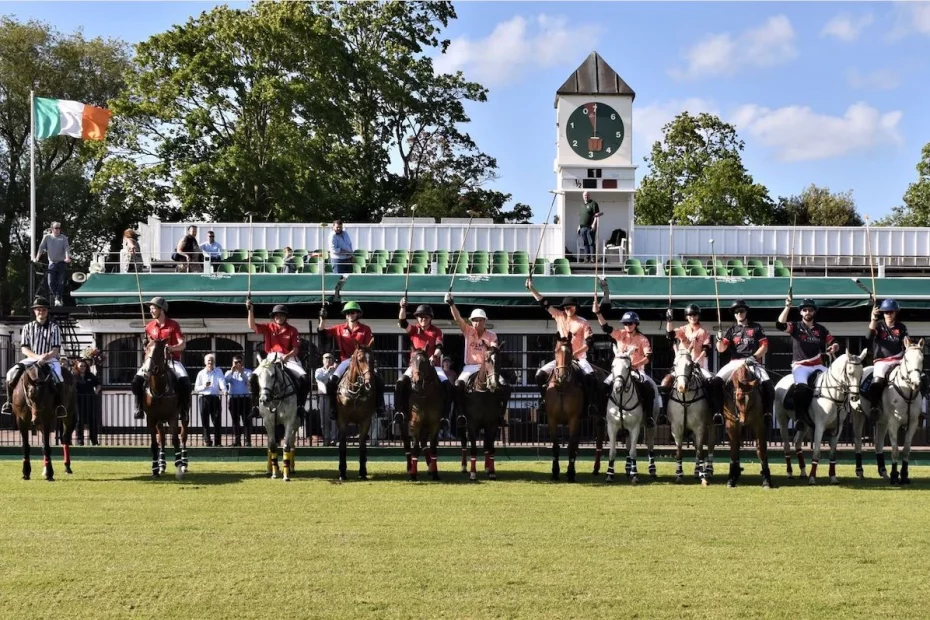If England ignited the explosion of polo across the globe, then Ireland was the fuse.
History of Polo in Ireland
In Cachar in 1859, the 10th Huzzars, a British Cavalry regiment, and tea planters from the area competed in polo matches. A detachment of these officers were later stationed in Limerick, Ireland shortly before returning to England. This chance encounter in 1868 between local horsemen of the Army and the British cavalry brought polo to Ireland for the first time. Among the first Irish soldiers and officers introduced to polo was John Watson. Originally from Carlow, Ireland, Watson quickly became an impressive player with a lasting legacy. Inventing both the backhand stroke and the four player structure, Watson is considered a founding father of polo.

Shortly after the first official match in 1870, The All-Ireland Polo Club in Phoenix Park was founded in 1873 by Horace Rochfort, making it the oldest club in Europe with some of the oldest tournaments like the All Ireland Open, the Irish County Cup in 1890, and the All-Ireland final, which helped promote the game regionally. As the sport swept through Ireland, its players branched out to challenge England in the Patriotic Challenge Cup in 1903, one of the oldest International Polo Tournaments in the world.
Ireland Polo Today
Today, all international polo teams from Ireland represent Horse Sport Ireland (HSI). Founded in 2006, HSI is the governing body for the whole island that ensures all teams play under the same protocols and regulations. With the support of this organization, Ireland has continued to compete internationally with great success, including recent victories in the European Finals of 2014 and 2016.
Adding to the country’s growing list of accomplishments, Ireland’s Siobhan Herbst and April Kent played in the 2021 Ladies Open in Argentina, making them the first women to represent Ireland at this level. This year, the Polo Hall of Fame also inducted Aidan Roark from Carlow, Ireland, the same home town as the founding father of polo. Roark participated in the 1939 International Polo Cup representing Great Britain and was the second ranked player on the team. He spent a great deal of his celebrated career playing polo on the West Coast of the U.S.

In the 2023 Winter polo season, Ireland also competed against the U.S. in an International match up at the National Polo Center- Wellington. Although Ireland did not come away with a victory,

The all Irish team was able to showcase their country’s rich polo history on one of the most iconic international stages. This most recent accomplishment has left the polo world wondering; what’s next for polo in Ireland?
Written in collaboration with Lily Brennan
